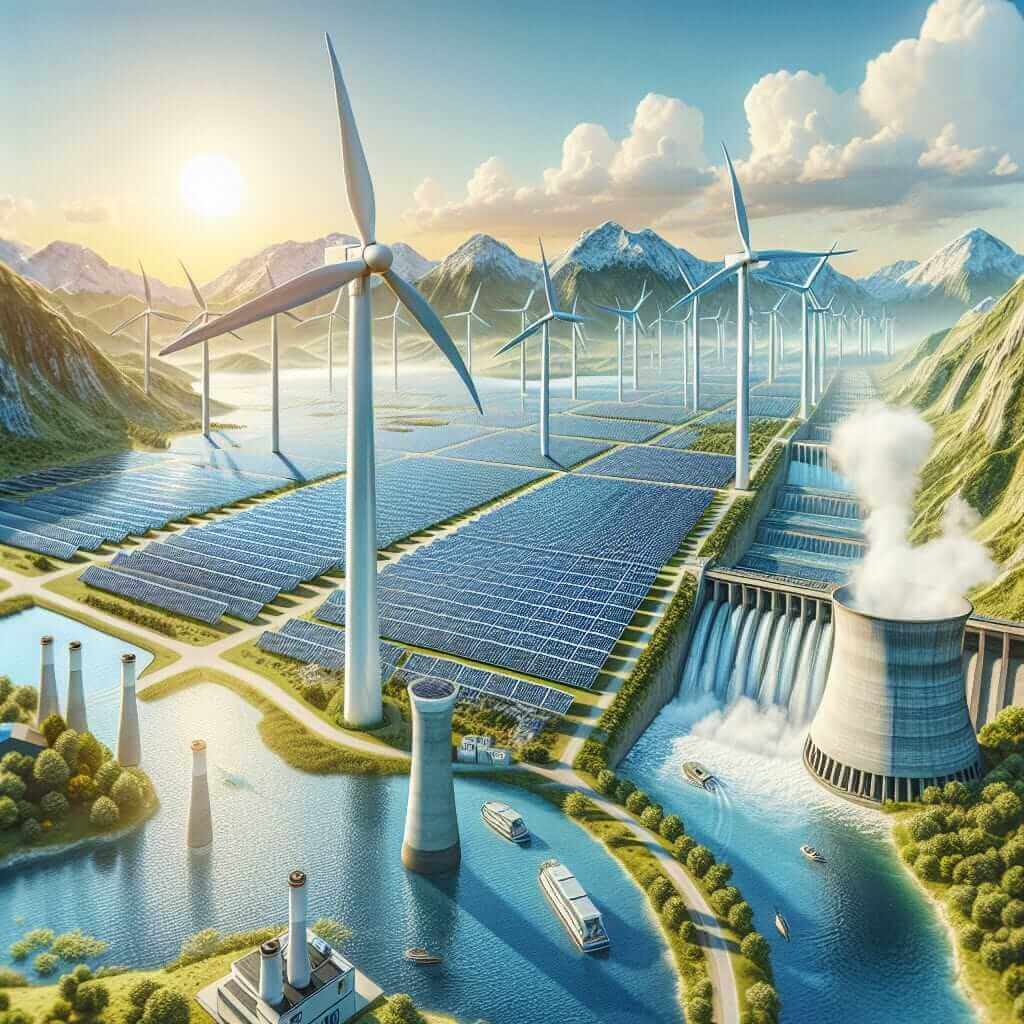Climate change is a pressing global issue, and the transition to renewable energy sources is often cited as a key solution. This topic frequently appears in IELTS Writing Task 2, prompting candidates to discuss the role of renewable energy in mitigating climate change.
Here are a few examples of how this topic might be presented in the IELTS exam:
- To what extent do you agree or disagree that switching to renewable energy sources is the most effective solution to climate change?
- Discuss the advantages and disadvantages of investing in renewable energy to combat climate change.
- Some people argue that focusing on renewable energy alone is not enough to address climate change. What is your opinion?
IELTS Writing Task 2 Sample Essay
Let’s delve into a sample essay addressing the first question prompt:
To what extent do you agree or disagree that switching to renewable energy sources is the most effective solution to climate change?
Analysis
This essay question requires you to present a clear stance on whether transitioning to renewable energy is the most effective solution to climate change. It’s crucial to acknowledge other solutions while arguing the significance of renewable energy.
Essay
Climate change, primarily driven by the emission of greenhouse gases, poses an unprecedented threat to our planet. While numerous solutions have been proposed, the transition to renewable energy sources is widely regarded as the most effective way to mitigate this crisis. I completely agree with this view, as renewable energy offers a sustainable and long-term solution to reduce our dependence on fossil fuels, the leading contributors to global warming.
The reliance on fossil fuels for energy production has had devastating consequences for the environment. Burning coal, oil, and gas releases massive amounts of carbon dioxide and other harmful pollutants into the atmosphere, trapping heat and warming the planet. In contrast, renewable energy sources like solar, wind, hydro, and geothermal power generate electricity with minimal or zero greenhouse gas emissions. By harnessing these clean energy sources, we can significantly reduce our carbon footprint and slow down the rate of climate change.

Moreover, renewable energy offers a decentralized and resilient energy system. Unlike traditional power plants that rely on a centralized grid, renewable energy sources can be deployed on a smaller scale, even at the household level. This distributed generation model reduces transmission losses and enhances energy security by diversifying energy sources. Additionally, renewable energy systems are generally more resilient to extreme weather events, which are becoming increasingly frequent due to climate change.
However, it is important to acknowledge that the transition to renewable energy is not without its challenges. The initial investment costs for renewable energy infrastructure can be high, and there are concerns about the intermittency of certain sources like solar and wind power. Nevertheless, technological advancements are continuously reducing costs and improving energy storage solutions, making renewable energy increasingly viable and affordable.
In conclusion, while other measures like energy efficiency and carbon capture technologies are important, switching to renewable energy sources is undoubtedly the most effective solution to combat climate change. By reducing greenhouse gas emissions, enhancing energy security, and fostering a more sustainable energy system, renewable energy holds the key to a cleaner, healthier, and more sustainable future for all.
(Word count: 326 words)
Writing Tips
- Vocabulary: Utilize a wide range of vocabulary related to climate change, energy, and solutions.
- Grammar: Employ complex sentence structures and a variety of grammatical structures to demonstrate language proficiency.
- Coherence and Cohesion: Ensure your essay flows logically with clear topic sentences, linking words, and cohesive devices.
- Supporting Evidence: Provide specific examples, data, or facts to support your arguments.
Vocabulary
- Mitigate (verb) /ˈmɪt.ɪ.ɡeɪt/: To make something less harmful, unpleasant, or bad.
- Sustainable (adjective) /səˈsteɪ.nə.bl̩/: Able to continue over a period of time.
- Greenhouse gases (noun) /ˌɡriːn.haʊs ˈɡæs.ɪz/: Gases that trap heat from the sun in the Earth’s atmosphere.
- Decentralized (adjective) /ˌdiː.sen.trə.laɪzd/: Controlled by several local offices or authorities rather than one single one.
- Resilient (adjective) /rɪˈzɪl.i.ənt/: Able to withstand or recover quickly from difficult conditions.
- Intermittency (noun) /ˌɪn.təˈmɪt.ən.si/: The quality of not being continuous or regular.
- Infrastructure (noun) /ˈɪn.frəˌstrʌk.tʃər/: The basic physical and organizational structures and facilities (e.g., buildings, roads, and power supplies) needed for the operation of a society or enterprise.
- Viable (adjective) /ˈvaɪ.ə.bl̩/: Capable of working successfully; feasible.
Conclusion
Mastering the vocabulary and arguments surrounding renewable energy and climate change is essential for achieving a high band score in IELTS Writing Task 2. Remember to practice writing essays on similar topics, analyze model answers, and seek feedback to refine your skills. Good luck with your IELTS preparation!